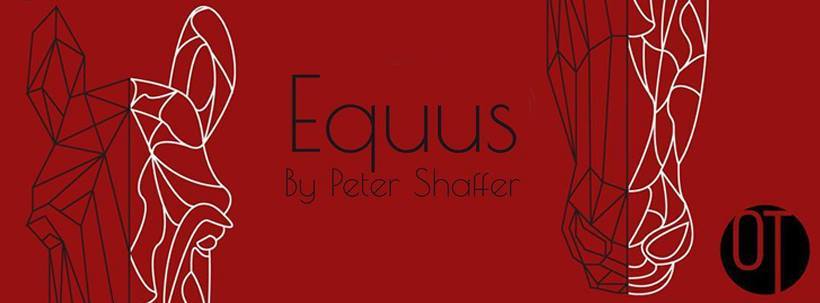“Passion, you see, can be destroyed by a doctor. It cannot be created.”
In Peter Shaffer’s Equus, directed by Andrew Brown and Becky Downing, the nature and effects of passion are analysed. Alan Strang (George Dennis) is a seventeen-year-old who has blinded six horses, and is being treated by Dr. Martin Dyser (Donny Weerasekera), a child psychiatrist harbouring doubts about his profession.
Dennis portrays with skill and a certain rawness a boy encumbered with shame from his religious and sexual worship of horses, and his parents’ revulsion to this. On the other hand, Weerasekera’s Dyser is witty even when dark, later showing the character explosive in his envy and self-doubt.
Dennis portrays with skill and a certain rawness a boy encumbered with shame from his religious and sexual worship of horses, and his parents’ revulsion to this.
The deeper we go into the play, the deeper we go into the characters’ psyches, and it is not just Alan that is psychoanalysed but Martin, who questions the goal of normality his subjects are to end up at. The pretenses of the parents too start to tear open, to reveal their own fears, doubts and perversions beneath. But society and us, its members, are really the subject to be cut open.
It asks whether the intensity of worship is worth its pain, and whether being accepted into society is worth the loss of individuality. The audience may be repelled by Alan’s perversions, but, like Martin, are we not too envious of them? At what points do we truly live?
It asks whether the intensity of worship is worth its pain, and whether being accepted into society is worth the loss of individuality.
In all, Equus was a performance that, in its most climatic moments, was hard to watch in the best way possible. It’s a play that seems to stare directly at you, much like the poster of Equus at the bottom of Alan’s bed at home, which is never shown but somehow always present. Equally, I think the ending monologue will stay with me for a while.
Abby Meyer
Image courtesy of LUU Open Theatre

